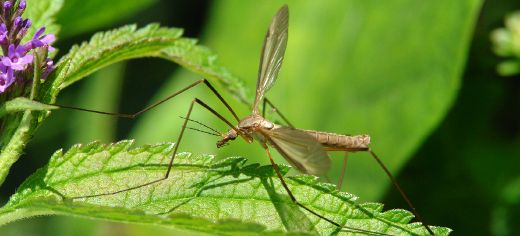
An entire ecosystem is at risk from the effects of climate change on the UK’s blanket bogs, scientists at the University of Leeds have warned.
These wetland habitats provide important feeding and nesting grounds for bird species including the dunlin, red grouse and golden plover. Blanket bogs are also the source of most of our drinking water and vital carbon stores.
The scientists warn that the effects of climate change, such as altered rainfall patterns and summer droughts, could drastically affect bog hydrology, which in turn could affect insect and bird populations.
Study co-author Professor Joseph Holden is Director of water@leeds, one of the largest interdisciplinary centres for water research in the world. He said: “Our study shows the interconnectedness of our precious upland peatlands in the UK.
“If the hydrology is altered by management or climate change, then the whole ecosystem starts to become fragmented."
The study, part-funded by the RSPB, saw the universities of Leeds, York and Aberystwyth collaborate with the British Trust for Ornithology to determine the importance of the cranefly, more commonly known as daddy longlegs, in the complex relationship between climate, bog habitats, birds and insects.
The predicted increase in summer droughts will cause significant decline in craneflies and subsequently the bird species that depend on the protein-rich source as food for chicks.
Dr Andreas Heinemeyer, from the Stockholm Environment Institute based at the University of York, which led the study, said: “There is a very strong relationship between the moisture of the peat and the survival of the larvae of the cranefly during summer. July and August are peak times: if it is too dry, the larvae just desiccate and die and are then not available for the bird chicks the following year.”
Using a peatland model developed by the University of York, together with the latest climate change predictions, scientists have anticipated that by the middle of the century the red grouse could see a 15% decline in numbers, with the golden plover down 30% and dunlin numbers cut by 50% – all driven by the decreased number of craneflies.
The findings suggest that restorative projects are needed to secure the future of these ecosystems.
Dr Matthew Carroll, RSPB Conservation Scientist, said: “Our work shows that climate change could harm some of our most iconic upland bird species. The birds rely on craneflies for food during the breeding season, and the craneflies rely on the cool, wet conditions in blanket bogs”.
Professor Holden added: “The hydrology of blanket peatlands is crucial to their ongoing survival as major carbon stores and as delicately balanced habitats. Climate change poses an important threat to these systems in the UK. Our research provides valuable new evidence that suggests we need to do all we can to protect the hydrology of peatlands in order to make them more resilient to climate change.”
Further information
The study was part of several longer-term studies funded by The Natural Environment Research Council and Defra. It investigated blanket bog ecosystems across several UK upland sites, including the Yorkshire Dales, Peak District and North York Moors.
The research paper, ‘"Hydrologically-driven ecosystem processes determine the distribution and survival of ecosystem-specialist predators under climate change" is published in Nature Communications today [July 31].
Professor Joseph Holden is Director of water@leeds, one of the largest interdisciplinary centres for water research in any university in the world, encompassing expertise from across the physical, biological, chemical, social and economic sciences and engineering as well as the arts. Its team comprises 150 professionals from across the different departments and faculties of the University of Leeds, ensuring a cross-section of expertise and different disciplinary backgrounds.
Professor Holden is available for interview. Please contact the Press Office at the University of Leeds, on 0113 34 34031 or email pressoffice@leeds.ac.uk